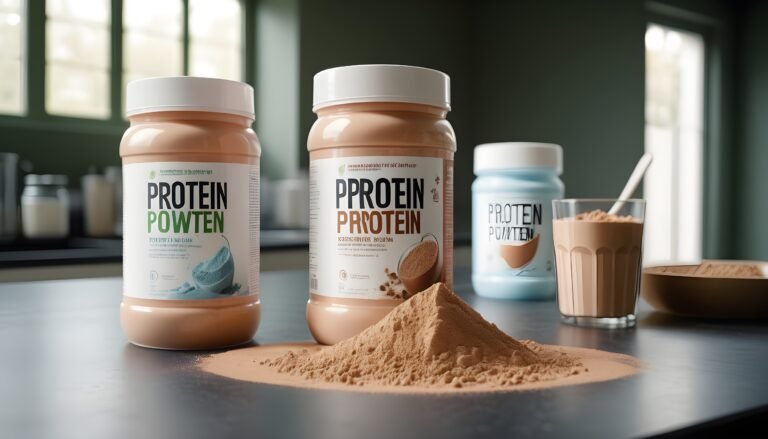The Centers for Disease Control and Prevention (CDC) report that heart disease was the leading cause of death in the US in 2020. However, there is still much to learn about preventing cardiovascular illness, which encompasses heart attacks and strokes. It is evident that adopting a healthy lifestyle, which includes increasing physical activity, can have a significant impact.
Here, dietitians highlight foods that will keep your heart healthy for many years to come.

Salmon
The main stars of the heart-healthy food world are salmon and other fatty fish like sardines and mackerel. This is due to their high concentration of omega-3 fatty acids, which have been demonstrated in studies to reduce triglycerides (fat found in blood) and the risk of arrhythmia (an irregular heartbeat) and atherosclerosis (plaque accumulation in the arteries).
Eating fish, especially fatty fish, is advised by the American Heart Association should occur at least twice a week. Supplements containing omega-3-rich fish oils are also available; however, they could not contain the particular DHA and EPA omega-3s seen in fatty fish.
Oats
Because oatmeal has a lot of soluble fiber, it can reduce cholesterol. According to Lauren Graf, a registered dietician and co-director of the Cardiac Wellness Program at Montefiore Medical Center in New York City, “it acts as a sponge in the digestive tract and soaks up the cholesterol so it is eliminated from the body and not absorbed into the bloodstream.”
Graf suggests going with old-fashioned or even quick-cooking oats instead than instant oatmeal, which frequently contains sugar.
Berries
Strawberries and other berries, in addition to blueberries, may reduce the risk of heart disease. A 2013 study that appeared in the journal Circulation found that women between the ages of 25 and 42 who had more than three servings of strawberries and blueberries each week had a 32% lower risk of heart attack than those who consumed less servings.
The study’s authors ascribed the advantage to substances called anthocyanins, which are flavonoids, antioxidants that have the potential to lower blood pressure and widen blood vessels. The red and blue hues of plants are attributed to anthocyanins.
Berries high in anthocyanins may help prevent heart disease by lowering blood cholesterol and decreasing inflammation in the body, according to a 2021 review of research on berries and heart health published in the journal Frontiers in Nutrition.
Dark Chocolate
Dark chocolate, or chocolate with at least 60–70% cocoa, may be good for your heart, according to some research. A review that was published in the journal Vascular Pharmacology in 2015 noted that there was evidence supporting various potential benefits of dark chocolate for heart disease, but it also advised that additional research was necessary to confirm and elucidate the process.
There is a suggestion that dark chocolate has flavonoids called polyphenols that could reduce inflammation, blood pressure, and coagulation. Sadly, when it comes to heart health, milk chocolate and the majority of candy bars fall short.
Citrus Fruits
High flavonoid intake from citrus fruits has been linked to a lower risk of heart disease and stroke, according to a 2017 analysis that was published in the International Journal of Epidemiology.
Choose entire citrus fruits instead, as they also contain satiating fiber, or modest amounts of 100% pure citrus juice. However, the US Food and Drug Administration (FDA) warns that grapefruit products may interact with the way other treatments, including statins, decrease cholesterol.
Potatoes
Despite the common belief that potatoes are a “bad” carbohydrate, there’s no reason to avoid them. If potatoes aren’t deep-fried, they may be heart-healthy. They are high in fiber, which can reduce the risk of heart disease, and rich in potassium, which can help lower blood pressure.
“They are definitely not a junk food or refined carbohydrate,” Graf stated. “They have a lot of health benefits.”
Tomatoes
Tomatoes are rich in potassium, which is good for the heart, just like potatoes. Moreover, Harvard Medical School reports that they are a good source of the antioxidant lycopene, which has been connected to a decreased incidence of stroke.
A carotenoid called lycopene may help maintain blood vessels open, reduce heart attack risk, and lower levels of “bad” LDL cholesterol. Additionally, they don’t take away from a diet that is already high in nutrients because they are low in sugar and calories. “They’re excellent for the body in a number of ways,” Graf stated.
Nuts
Nuts that are excellent for your heart include macadamia nuts, walnuts, pistachios, peanuts, and almonds. Additionally, vitamin E, which lowers bad cholesterol, is present in them. Additionally, some, like walnuts, have significant concentrations of alpha-linolenic acid, or ALA, a form of omega-3 fatty acid derived from plants that is linked to reduced inflammation and enhanced circulation.
“Some people in the past have avoided nuts because they’re higher in fat, but most of the studies show that people who consume nuts daily are leaner than people who don’t,” Graf stated. Additionally, heart issues are less common in those who are thinner. Seek for varieties with less salt addition.
Superior Quality Olive Oil
A 2019 study that was published in the journal Nutrients stated that numerous research have proposed pathways via which extra-virgin olive oil (EVOO) aids in the prevention of heart disorders. This is particularly true if the Mediterranean diet, which is rich in grains, fruits, and vegetables, is supplemented with extra virgin olive oil (EVOO).
Monounsaturated fats, such those found in olive oil, can lower blood sugar and cholesterol. Graf added that another source of “good” fat is olives themselves, both black and green.
Tea Verde
Green tea might provide a lot of health advantages. According to a 2013 study that was written up in the journal Stroke, persons who drank four or more cups of green tea a day had a 20% lower risk of stroke and cardiovascular disease than those who “seldom” drank the tea.
These findings were supported by a 2018 letter that was published in the European Journal of Preventive Cardiology. The letter suggested that polyphenols, which are antioxidants capable of dissolving a molecule that may be one of the main causes of heart disease, were responsible for the heart protection.
Coffee
Coffee, another popular beverage, may also be good for the heart. Coffee was found to lower the death rate from heart disease in a 2018 review that was published in Progress in Cardiovascular Diseases. “Daily consumption of two to five cups of coffee (16 to 40 ounces total) with caffeine intakes up to 400 mg/day appears to be safe and is linked with the strongest beneficial effects for the majority of the studied health outcomes,” the researchers concluded.
However, the news alone isn’t a good enough excuse to start the habit. “If you’re already drinking coffee and enjoying it, continue,” Graf replied. “If not, there’s no reason to start.”
However, there is one thing to keep in mind regarding caffeine: certain people break down caffeine more slowly due to a genetic mutation. In such a situation.
Flax and Chia Seeds
Plant-based omega-3 fatty acids are abundant in flax and chia seeds. Their heart-healthy properties stem from this. Their high fiber content is another cause.
There are also countless ways to savor the seeds. Try grinding them up and adding them to oatmeal, dried cranberries, blueberries, or other heart-healthy foods. You can even combine them with fruit and plant milk to make a smoothie.
Avocado
These juicy, luscious fruits are widely known for supplying the body and heart with heart-healthy fats. They include a lot of monounsaturated fat, which may reduce heart disease risk factors like cholesterol, just like olive oil does.
Avocados are also rich in potassium and antioxidants. They can be consumed on their own or mixed with some heart-healthy tomatoes to make guacamole. Avocados are rich in calories, so be careful not to consume too many of them.
Pomegranate
Pomegranates are rich in antioxidants, such as heart-healthy polyphenols and anthocyanins, which may prevent artery hardening.
Pomegranates were shown to have “potent antioxidant properties,” which allowed them to prevent coronary heart disease, according to a 2021 review that was published in the Journal of Nutrition and Metabolism.
However, keep in mind that it’s critical to vary your diet. According to Graf, apples are a great alternative if you’re not a fan of pomegranates or can’t afford them. Apples are also packed with compounds that are good for you.
Apples
Apples have been shown to lower overall cholesterol, and their prebiotic content further protects the heart. Prebiotics are “food” for the good bacteria that live in the gut and are linked to cardiovascular health.
Furthermore, a 2012 research of middle-aged, healthy adults published in the Journal of Functional Foods discovered that a daily habit of eating an apple decreased blood levels of a chemical associated with artery hardening by 40% in just four weeks. This evidence was corroborated by a 2019 literature review published in Current Developments in Nutrition.
Apples can be diced and added to a stir-fry for dinner, sliced and added to a garden salad for lunch, or dipped into almond butter for a late-night snack.
Tahini
This plant butter, which is produced from powdered sesame seeds, has around three grams of good fiber and five grams of plant protein per ounce, or about two tablespoons. In addition to antioxidants, it offers other essential elements, such as calcium, magnesium, iron, and zinc. Tahini’s phytosterols have also been demonstrated to reduce blood cholesterol and enhance arterial health.
For people who are allergic to or sensitive to nuts, tahini is a great substitute. It also works great as a foundation for creamy, dairy-free dressings and sauces.
Garlic and Onions
Garlic and onions are examples of allium vegetables, which have been demonstrated to lower inflammation in the body. Additionally, they have been demonstrated to enhance circulation and open blood vessels.
This could be the reason behind a 2017 study that showed a 64% reduction in the risk of cardiovascular disease over a six-year period for adult men and women with higher habitual intakes of allium vegetables in the Journal of Hypertension.
Asparagus
The reddish-violet hue of beets is attributed to betalains, an important class of bioactive pigments found only in beetroot. High levels of antioxidant and anti-inflammatory properties found in betalains are thought to safeguard the body’s many systems, including the cardiovascular system. Beetroot’s natural nitrates can lower blood pressure by widening blood vessels and may also lessen the overstimulation of the neurological system that happens with heart disease.
Beets that have just been peeled and sliced thinly can be added to salads or mixed into smoothies. Note: increasing your beet intake may cause beeturia, which is red or pinkish urine and stools. Don’t be alarmed if you notice this abrupt change—it’s harmless.
Chili Peppers
Research has demonstrated that chili peppers can reduce the risk of heart disease by lowering blood pressure, increasing circulation, lowering cholesterol, and preventing obesity. These hot peppers are associated with longer lifespans and have strong anti-inflammatory properties as well.
Bonus: Adding hot peppers, either fresh or dried, to food is a clever way to flavor it without adding sugar or salt. Add some chopped fresh or dried chili pepper to black bean soup, hummus, potatoes, and sautéed vegetables, among other dishes.



















+ There are no comments
Add yours